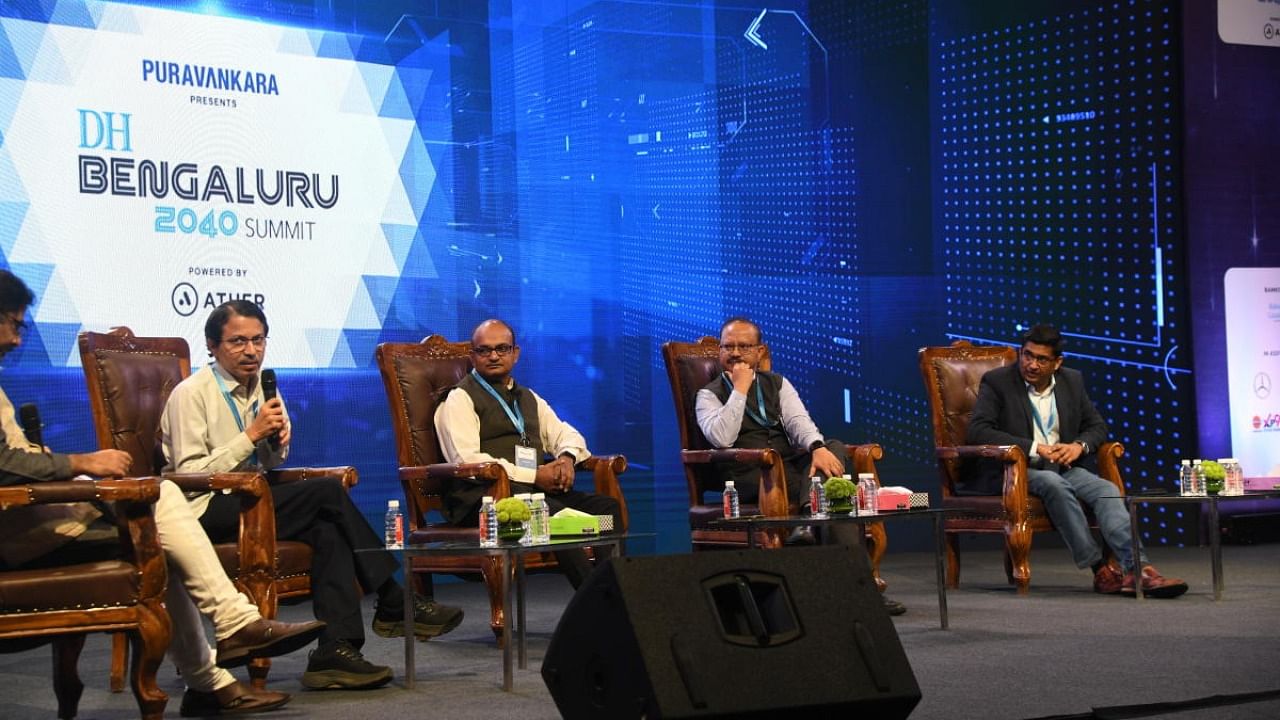
While there is no arguing the fact that Bengaluru has established itself as a leader in research and development (R&D), producing “talent of the highest quality” to create world-class IPs and products, there is a need to harvest this leadership and ensure a convergence of multiple stakeholders in this ecosystem.
As scientists and corporate leaders sat down to discuss the city R&D roadmap at Deccan Herald’s Bengaluru 2040 Summit on Saturday, they recognised the city’s transition from being the world’s back-office to its science and innovation capital.
Prof Navakanta Bhat, Dean, Interdisciplinary Sciences Division and Professor, Centre for Nano Science and Engineering, Indian Institute of Science (IISc), said Bengaluru, over the last couple of decades, had evolved from a supporting player for development elsewhere to a lead in conceiving, innovating and delivering products in a self-sustaining talent ecosystem. “At institutes like the IISc, the focus over the last couple of decades has been innovation with an emphasis on interdisciplinarity and breaking silos,” he said.
Moderating the discussion, titled ‘Laboratory of the World: The Future of Bengaluru in Science and Innovation’, S Raghotham, Opinion Editor, Deccan Herald, set the context for the panel by underlining the city’s formidable R&D infrastructure and seeking reasons for the consistently impressive investment it attracted in the sector.
Manu Saale, MD and CEO, Mercedes Benz R&D, India, said advanced technology had products across sectors undergoing a “fundamental reengineering” and the talent required to do this was coming from Bengaluru.
Prof Tarun Souradeep, Director, Raman Research Institute, said the ecosystems for innovation also needed to factor in the source of the innovation. “Often, we talk directly about the applications (of the innovation) but where are these applications coming from? Any equipment you see in a laboratory actually addressed some fundamental questions before becoming a routine,” he said.
“(With the ecosystem in place), Bengaluru is a natural choice for R&D investment but we need to evolve to a place where we send the R&D funds from here, and be in that seat of power where we tap into talent across the globe,” Gopichand Katragadda, Founder-CEO, Myelin Foundry, said.
Speaking about Bengaluru’s technology-readiness challenges, Prof Bhat stressed on the need to create a vibrant start-up ecosystem that can potentially be incubated in the academic institutions that could provide a platform for these startups. He said IISc incubated close to 60 deep-tech startups in the last five years.